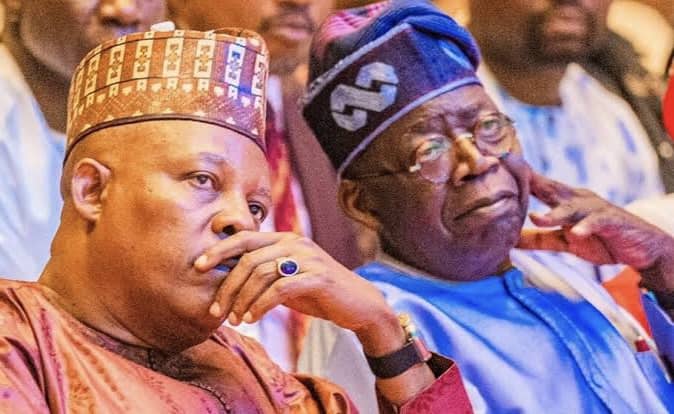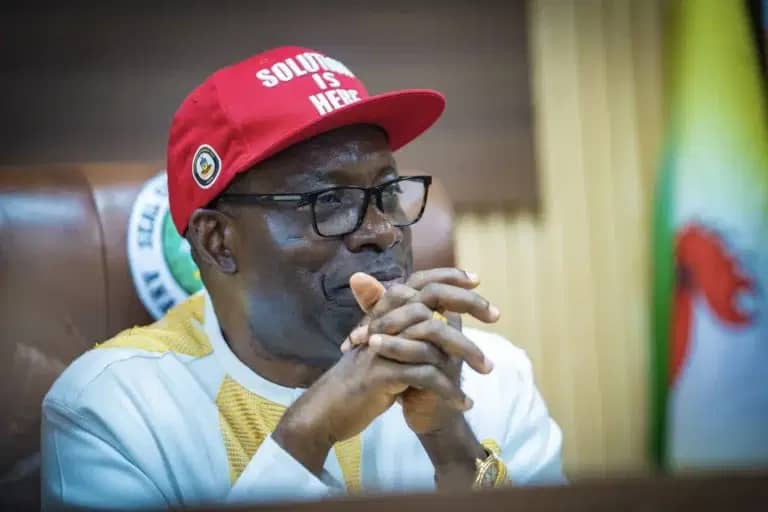Vice President Kashim Shettima has said that the stringent economic policies introduced by President Bola Tinubu are necessary for the long-term welfare and stability of Nigeria.
Speaking on Wednesday, Shettima emphasized that although the reforms have created short-term difficulties for citizens, they are essential measures aimed at repositioning the nation for sustainable growth.
The Vice President made the remarks during the 2024 Nigerian Bar Association’s (NBA) Annual Conference held in Abuja. While addressing a gathering of legal professionals, policymakers, and stakeholders, Shettima insisted that the Tinubu administration is committed to steering the country through economic reforms that will eventually yield benefits for all Nigerians.
Since assuming office in May 2023, President Tinubu has implemented several sweeping economic reforms. Chief among them are the removal of the decades-long fuel subsidy and the unification of Nigeria’s foreign exchange rates. These policies have led to significant increases in fuel prices and volatility in the value of the naira, contributing to rising inflation and widespread public dissatisfaction.
Despite the backlash, Shettima argued that the government had no viable alternative if it wanted to rescue Nigeria from the edge of economic collapse. He stated that the previous policies, including the fuel subsidy, were unsustainable and primarily benefited a small elite at the expense of the larger population.
He acknowledged the hardship currently being experienced by many Nigerians, noting that the administration was not blind to the realities on the ground. However, he insisted that these difficulties are a necessary phase in the nation’s journey toward economic stability and development.
According to Shettima, “We know that our people are going through tough times, but we are also confident that these are birth pangs of a better future.” He further noted that the government is putting mechanisms in place to cushion the effects of these reforms, including targeted social investment programs aimed at assisting the most vulnerable populations.
Shettima also urged citizens to remain patient and trust the administration’s long-term vision for economic recovery. He described the Tinubu-led government as one determined to correct past policy failures and build a more inclusive and prosperous Nigeria.
The Vice President’s remarks come at a time of increasing pressure on the federal government to reverse or reconsider some of its economic decisions. Labour unions, opposition politicians, and civil society groups have repeatedly criticized the administration over the rising cost of living, food inflation, and declining purchasing power.
In defense of the policy direction, Shettima pointed to efforts aimed at boosting local production, reducing reliance on imports, and attracting foreign investment. He said these are necessary steps to strengthen the economy and ensure that Nigeria becomes more self-sufficient in the long run.
Since the subsidy removal, petrol prices have tripled, causing transportation and commodity costs to surge. The exchange rate reforms have also made imports more expensive, contributing to higher inflation levels that have pushed many households into deeper financial strain.
The federal government has announced several palliative measures, including distributing food items, cash transfers, and providing low-interest loans to small and medium-sized enterprises. Critics argue, however, that these measures have not been sufficient to offset the hardships brought on by the new policies.
Nonetheless, Shettima remained resolute in his defense of the administration’s economic strategy. He stated that Tinubu’s leadership is focused on building a foundation for long-term prosperity, even if it means enduring short-term discomfort.
The Vice President concluded by calling on all sectors of society, including the legal profession, to support the federal government’s efforts in repositioning the Nigerian economy. He stressed the importance of unity and collective sacrifice in navigating the country through its current economic challenges.
As the nation continues to grapple with inflation, unemployment, and social unrest, the Tinubu administration’s reforms remain a deeply polarizing issue. Yet, government officials like Shettima maintain that enduring these difficult measures is essential to securing a better economic future for Nigeria.





